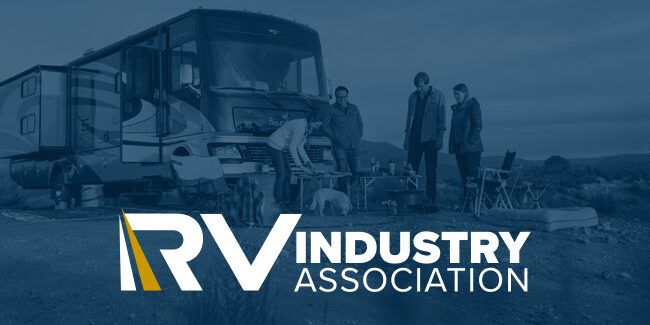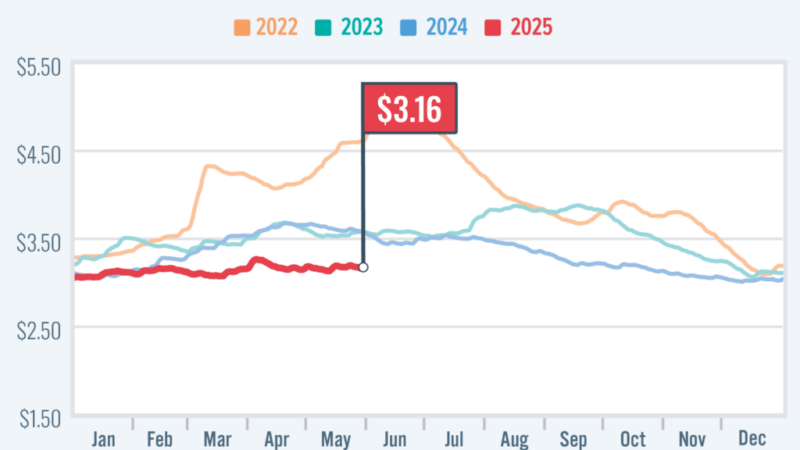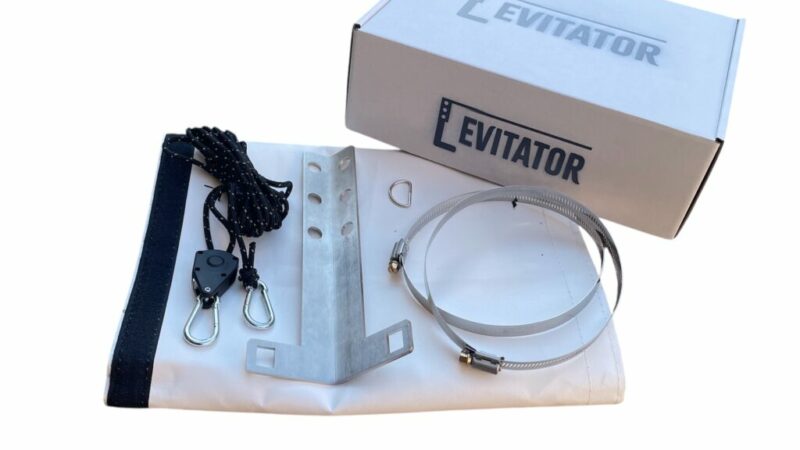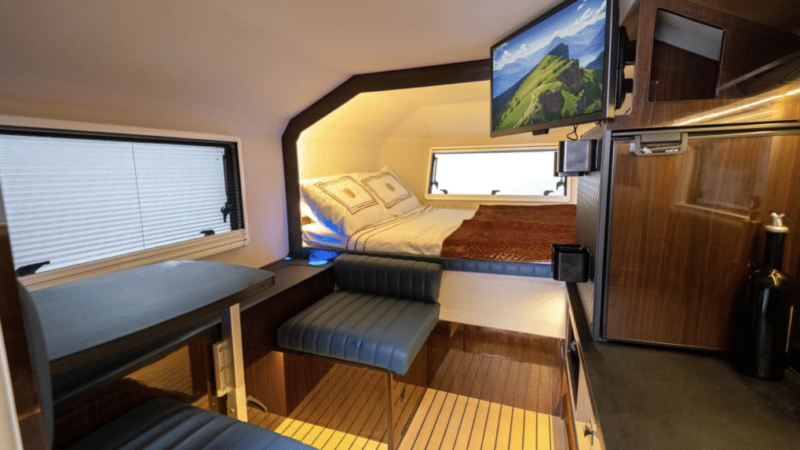California’s ‘Ban’ on Motorhomes: What You Need To Know – RVBusiness – Breaking RV Industry News
EDITOR’S NOTE: The following posting was written by the RV Industry Association (RVIA). The issue has been sweeping across the Internet and social media as well. In separate videos, DeMartini RV Sales in Grass Valley, Calif., (above), and, following the posting, videos from Jason Epperson of RV Miles, Mike Wendland of RV Lifestyle, and Izzy and MJ Alsina from Endless RVing provide further commentary on this issue from their unique perspectives.
In 2025, California’s Advanced Clean Trucks (ACT) regulation, aimed at promoting zero-emission vehicles (ZEVs), will create a near-total “ban” on motorhome sales in the state, as well as in additional states that follow the California Air Resource Board (CARB) regulations. While the regulation does not specifically ban motorhome sales, the ACT regulation mandates manufacturers of medium and heavy-duty vehicles to sell an increasing percentage of ZEVs each year. This has led chassis manufacturers to halt sales of traditional internal combustion engine chassis for motorhomes in California, stemming from the lack of ZEV chassis suitable for motorhomes.

Since 2020, the RV Industry Association (RVIA) has been working with CARB on the ACT regulations through conversations directly with CARB staff as well as written and oral testimony at multiple public hearings. When CARB filed its proposed amendments earlier this year, the RV industry met with CARB staff to discuss the impact on the industry. RVIA also submitted comments laying out the negative impact of the regulation on the motorhome industry.
Unfortunately, CARB did not make any further amendment which would alleviate the problem of motorhome manufacturers being told by chassis manufacturers that they would not be able to supply ICE (internal combustion engine) chassis for sale into California since they could not offset their ZEV deficits by sales of a ZEV motorhome chassis.
Making the matter more complicated, it is not just the ACT that is causing the issue right now; it is the trio of regulations passed in the last 2-3 years: the ACT, along with the Omnibus Low NOx rule and the Advanced Clean Fleets rule. These three rules work together with the goal of gradually transitioning medium- and heavy-duty vehicles to zero emission vehicles (ZEVs) by 2036. We have commented to CARB on each of them, and also on the Small Off-Road Engine regulation which threatens spark-ignition engines on generators.
RVIA continues to work with CARB staff on the ACT with their staff looking to hear more from our members and understand why chassis manufacturers will not be able to deliver products. While we are continuing to work with manufacturers, dealers, and CARB to find a solution, if nothing changes, motorhomes will not be able to be sold and registered in California beginning in 2025. The exact date is still to be determined.
Below are some FAQs on the Advanced Clean Trucks Regulation and how it is specifically impacting the RV industry and RV consumers both in California as well as other states. For more information or questions on the impact of the Advanced Clean Trucks (ACT) regulation, please contact RVIA Director of Government Affairs Mike Ochs at [email protected].
Advanced Clean Trucks Regulation FAQs
What is the Advanced Clean Trucks (ACT) regulation and does it ban the sale of motorhomes in California? When was this regulation passed?
The Advanced Clean Trucks (ACT) regulation was adopted by the California Air Resources Board (CARB or Board) in 2021 to establish zero emission vehicle standards for medium and heavy-duty vehicles. The ACT regulation establishes requirements for manufacturers that certify on-road vehicles over 8,500 lbs. gross vehicle weight rating (GVWR) to produce and sell an increasing portion of their sales as vehicles that emit no criteria or GHG emissions, i.e., zero emission vehicles (ZEVs) starting in the 2024 model year and ramping up through the end of the 2035 model year.
Amendments to the ACT regulation approved by the Board in October of 2024 addressed issues that have arisen through the rule’s implementation, including OEMs restricting sales of motorhome chassis. The amendments also sought to establish a new Zero-Emission Powertrain Certification test procedure and ensure alignment with the original intent of the rule as well as CARB’s commitments contained in the Clean Truck Partnership agreement.
While the ACT regulation does not impose an outright ban on motorhomes, it has as its primary component a sales requirement that applies to manufacturers that certify incomplete chassis or complete vehicles greater than 8,500 lbs. GVWR (i.e., Class 2b-8 vehicles). Manufacturers (e.g., Daimler, Ford, GM, Mercedez Benz, Navistar, Stellantis, etc.) are required to sell ZEVs as a percentage of their annual total sales. Because chassis manufacturers have no ZEV chassis that are rated for applications to motorhomes, they have been informing motorhome manufacturers that they will not be able to provide them with any internal combustion engine chassis for motorhomes for the California market.
Is it all motorhomes or just diesel that are covered by the ACT regulation? Is there a weight limit? Are Class Bs affected?
While the majority of the attention thus far has focused on Class A and Class C diesel motorhomes, the regulation, with a few exceptions, applies to all medium-duty or heavy-duty vehicles with combustion engines. Any non-exempted on-road vehicle over 8,500 GVWR is included is covered by the regulation, including Class B motorhomes most of which have a GVWR over that amount.
Vehicles exempted from the ACT regulation include emergency vehicles, military tactical vehicles, transit vehicles subject to the Innovative Clean Transit regulation, school buses purchased by K-12 school districts and other entities, and light-duty vehicles dispatched but not owned by transportation network companies (ACT reg, Section 2012(c) Exemptions).
Does CARB consider this a ban, or are there options CARB has laid out for the industry? Are these options feasible?
CARB insists that this regulation gives flexibility to chassis manufacturers in being able to buy and sell ZEV credits to allow them to build combustion engine chassis. The amendments approved last month will also permit secondary vehicle manufacturers to buy and sell these credits. However, neither of these provisions will guarantee that chassis manufacturers will utilize these credits, which are likely to be expensive on the open market and would add another layer of cost to producing a motorhome with a combustion engine chassis. Thus, the RV Industry Association does not believe that a solution that offers only one path for compliance (purchasing expensive ACT credits) is actually a solution at all.
Is the ACT regulation limited to California or are other states following this same regulation?
There are ten states which have adopted the CARB ACT rule. Rules in Massachusetts, New Jersey, New York, Oregon, and Washington will take effect with the 2025 model year while rules in Vermont will take effect with the 2026 model year, and those in Colorado, Maryland, New Mexico, and Rhode Island with the 2027 model year.
States that adopt California emission standards (so-called Section 177 states) are required by federal law to maintain consistency with California’s requirements. Thus, amendments made in California will eventually be adopted by the states listed above.
When does the ACT go into effect? Will dealers be able to sell motorhomes currently on their lots?
The ACT rule applies to model year 2024 and later chassis. The rule has no effect on motorhomes that have already been legally produced and delivered to California.
If a consumer buys an RV from another state that does not comply with ACT, will the consumer be able to register the RV in California?
In the amendments adopted in October 2024, CARB adopted new vehicle labeling and reporting requirements that will help regulators in California ensure that new vehicles registered in California are compliant with the ACT regulation. The amendments take effect with the 2025 model year. In response to a question at the hearing about non-compliant vehicles coming in from out of state, CARB said that a used vehicle, defined as one with more than 7,500 miles on the odometer, could be brought in and registered. Any motorhome with less than 7,500 miles would be considered a new vehicle and would have to be compliant in order to be registered.
Can dealers sell non-compliant RVs to residents outside of California?
Motorhome manufacturers will not be able to ship a non-compliant vehicle into any of the ACT states; thus, California RV dealers would not be able to sell a non-compliant motorhome to a resident of another state even if the customer intends to register the motorhome in a non-ACT state.
How is the ACT regulation enforced? Is it a ban on sales or a ban on registering non-compliant motorhomes?
The ACT regulation directly regulates the companies that certify chassis meet the applicable ZEV production percentages set forth in the regulation. Sales and reporting requirements contained in Section 1963.4 of the regulation require those manufacturers to report to CARB on how they are complying with the requirements. Section 1963.5 of the regulation sets forth enforcement requirements which indicate that CARB has the authority to audit the compliance records of any manufacturer or secondar vehicle manufacturer to confirm the accuracy of their compliance reports. CARB may assess penalties for noncompliance.







